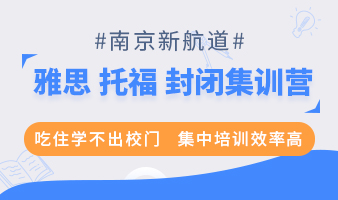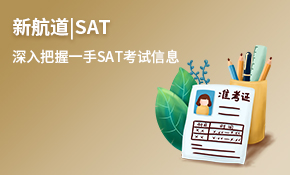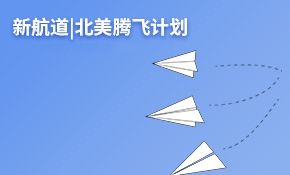托福培训—托福听力范例解析?托福听力十大考点解析?
托福培训—托福听力范例解析?托福听力十大考点解析?通常来说,对于一个着手准备托福考生的学生要想把文章听得滴水不漏、字字俱清,通常需要1000个小时的精听练习量,如果我们按照学生可以每天听3小时计算,需要听多久呢?答案是1年。即便是每天听5小时,那也要200天,何况真要是每天听个5小时,别的事情基本都不用做了,估计最后用不了几天广大考生就口吐白沫、含笑九泉了。
那么广大考生看到这里不禁会问:啊?!那听不够1000小时岂不是还没去考试就意味着我们注定没戏了?其实不然!大家应当知道,托福考试是个标准化考试,文章的编纂者不能由着自己的性子、随着自己的心情来编写或者换一班人马就换一种行文套路,上述情况不能出现。考试所听到的文章往往都是按照一定标准或者规律来研发编写。既然是这样,也就有了新航道老师为大家提炼的托福听力十大考点信号词。
一、开头处的常见信号词考点
★Conversation:I was wondering/I was thinking/I was hoping/I wanted to/the reason I'm here等
[精讲]
需要大家注意的是,上述的几个信号词中,考生若听到前面的四个请不要进行时态对译,此处实际上表示的是一种委婉语气,近似于“寡人以为”或“小女子窃以为”,听到后请直接理解为我现在想要如何即可。请看实例(TPO 19 C1):
[听力原文]
Student:Yeah, I can see how that might do the trick. But, anyway, what I wanted to ask was, when you started talking about game theory. Well, I know a little bit about it, but I am not clear about its use in biology.
[考题再现]
1. Why does the man go to see the professor?
A. To ask for help in choosing a topic for his term paper
B. To ask the professor to explain how to complete an assignment
C. To ask about a point raised in a recent lecture
D. To offer to help the professor with her research project
[解析]
原文中出现了what I wanted to ask was,考生应当知晓主旨即将给出,认真听后面的内容就可以拿分,重点内容是but I am not clear about its use in biology.我们可以看到,抓住了信号词和后面的重点内容,即便之前的部分内容听得不好,也不会影响将此题做对。此题答案为C。
★lecture请注意下面的三种情况:①文章中教授的设问句;②标准的lecture主旨句型:today I am going to talk about或者today I am going to discuss;③开头处的个but.请看实例(TPO 2 L2):
[听力原文]
Today we'll continue talking aboutuseful fibers, and we'll begin with a fiber that's commonly known as "Manila hemp."
[考题再现]
1.What aspect of Manila hemp fibers does the professor mainly discuss in the lecture?
A. Similarities between cotton fibers and Manila hemp fibers
B. Various types of Manila hemp fibers
C. The economic importance of Manila hemp fibers
D. A use of Manila hemp fibers
[解析]
考生听到Today we'll continue talking about就应该意识到出题点到来,需要用笔或者大脑记住其后重要的信息useful fibers,与选项进行核心词比对即可确认D为正确选项。
二、人名等专有名词
[精讲]
在此提醒考生两点需要注意:
其一,并非每次听力考试中听到重要人名或者地名后,屏幕上都会出现相应的“黑板提示词”,所以平时备考的准备过程中,各位考生必须注意重要人名的读音积累,尤其是那些影响巨大、故去已远的知名人物,比如苹果神话的乔布斯,他名气够大,影响深远,可惜离我们还不够久远,所以托福是不可能将其列入备考对象的。
其二,考生仅仅听出了人名或者记下了人名,是不够应对托福听力考题的,因为托福听力考题从来不会在题干描述一个事实,然后列出四个选项问你是谁做的。这种弱智的题目问法,只有在弱智的托福模考试题里才能找得到!
假若我们听到人名或者看到人名提示词了,该怎样听呢,这里给大家一句口诀:人名——要听其生平背景,记其何德何能!所谓生平背景,是说文章这个人很牛;何德何能,是说这个人为啥就这么牛!
请看实例(TPO19 L4):
[听力原文]
A great example of that, that vision in portraiture, is Cecilia Beaux. Cecilia Beaux was born in 1854, and after learning to paint and studying with several important artists of the time, Beaux became known as one of the best portrait painters in the United States. She was very successful. She even had portraits of the wife and children of Theodore Roosevelt, while he was president. So hedid not get much more prestigious than that.……Yeah, she really stood out back in the 1800s. And today, she is still considered one of the greatest portrait painters of her time, male or female. In fact, she was the first full-time female instructor at the PennsylvaniaAcademy of the Fine Arts, and she was a full member of the National Academy of Design. These are pretty important institutions, so, yeah, she definitely made headway for women artists.
[考题再现]
2. What evidence does the professor cite to illustrate Cecilia Beaux's reputation as an artist? Click on 2 answers.
A. The instructors that she studied art with
B. Her role in professional art organizations
C. Her connection with an important politician's family
D. The features of her work that the Impressionists imitated
[解析]
相信各位考生在反思上述文段时可以看到,除了划横线部分的句子外,其余的句子都是在介绍人物的生平背景,告诉你她是牛人,但是只有横线部分的句子告诉了你,她是如何达到大牛的地步的。所以,此题答案为BC。
三、表示转折关系的词
[精讲]
考生在听力、口语、阅读和写作的课上肯定学到过无数表示转折的词,多到无以计数,多到让大家高瞻仰望,在这里只给大家提炼四个重要的转折词,它们是ETS出题所钟爱的,它们分别是:but, however, actually, in fact.
请看实例(TPO16 L3):
[听力原文]
Now I would have thought the bigger the tree, the farther the beaver would be willing to travel for it. That would make sense, right? If you're going to travel far, make the trip worth it buy bringing back most wood possible. But actually, the opposite is true. Beavers will cut down only large trees that are close to the water.They will travel far only to cut down certain small trees that they can cut down quickly and drag back home quickly.
[考题再现]
4. What does the professor say about the cutting down of large trees?
A. Beavers generally prefer cutting down large trees to small trees.
B. Beavers generally do not travel long distances to cut down large trees.
C. Beavers will not cut large trees of certain species.
D. Beavers use large trees mainly for the purpose of building shelters.
[解析]
横线前面的句子是教授的一种虚拟假设,然后利用横线部分的句子来自我推翻,文章明确告诉了我们这种动物只喜欢在离水近的地方啃大树,去远处只喜欢啃小树。所以此题答案为B。
四、表示因果关系的词
同样地,各位在各种书上和培训课程中见到过浩如烟海的表示因果关系的词或者词组,但是老师这里依然为大家提炼这么几个ETS钟爱有加的考点词,它们是:because/because of /the reason is/ that's why/account for/so.请看实例(TPO2 L2):
[听力原文]
Now, why was that? Well, the main reason was that steel cables degrade very, very quickly in contact with salt water.If you've ever been to San Francisco, you know that the Golden GateBridge is red. And it's red because of the zinc paint that goes on those stainless steel cables.
[考题再现]
4.Why does the professor mention the Golden Gate Bridge?
A. To demonstrate a disadvantage of steel cables
B. To give an example of the creative use of color
C. To show that steel cables are able to resist salt water
D. To give an example of a use of Manila hemp
[解析]
文段中划线的句子是自问自答表因果,句意大体意为:steel cables一和盐水接触便迅速腐蚀。题目问的是因果后面的内容,此部分内容是验证划线部分内容的。据此,我们可以选出A为正确答案。
五、表示举例的词
[精讲]
认为举例的词在考试中遇到最多的就是for example, for instance, take, like, say这几个了。考生要讲例子的核心词记下来,并且要努力听出这个例子是为谁服务的,为什么要举这个例子,那么题目无论怎么考我们都不用害怕。请看实例(TPO2 C1):
[听力原文]
Student:Hmm . . . something just came into my mind and went out the other side.
Professor:That happens to me a lot, so I've come up with a pretty good memory management tool. I carry a little pad with me all the time and jot down questions or ideas that I don't want to forget. For example, I went to the doctor with my daughter and her baby son last week and we knew we wouldn't remember everything we wanted to ask the doctor, so we actually made a list of five things we wanted answers to.
[考题再现]
3.Why does the professor tell the man about the appointment at the doctor's office?
A. To demonstrate a way of remembering things
B. To explain why she needs to leave soon
C. To illustrate a point that appears in his report
D. To emphasize the importance of good health
[解析]
学生说:“我刚想说什么来着,我给忘了。”老师安慰学生说这个情况她也常有并且有个绝招可以克服遗忘,然后就举了文中划横线处的那个例子,其目的必然是A选项。
六、表示含义强调的词
[精讲]
表示含义强调的词,这里给出以下几个:especially, again, really, only, distinctive.如前所述,各位考生在听到这些提示词时,请集中精力听好其后所强调的具体内容。请看实例(TPO2 L3):
[听力原文]
So how does all this relate to human happiness? Well, Aristotle asks: is there something that all human beings value . . . and value only intrinsically, for its own sake and only for its own sake? If you could find such a thing, that would be the universal final good, or truly the ultimate purpose or goal for all human beings. Aristotle thought the answer was yes. What is it? Happiness. Everyone will agree, he argues, that happiness is the ultimate end to be valued for itself and really only for itself.
[考题再现]
3.Why is happiness central to Aristotle's theory?
A. Because it is so difficult for people to attain
B. Because it is valued for its own sake by all people
C. Because it is a means to a productive life
D. Because most people agree about what happiness is
[解析]
教授的自问自答往往都是出题的要点,该文段内,教授多次使用了含义强调词来修饰一个核心概念:for its own sake/for itself,利用此核心词来比对选项,可以轻松得到B为正确选项。
七、表示名词解释的词
[精讲]
托福听力模仿的是北美大学课堂教授讲课的情景,作为老师,讲课的成就感或快感来自于何处呢?必定是把一个复杂的东西或者奇葩的事情给学生深入浅出地讲明白啦~。托福听力考试中,经常有一些拗口的词汇出现在电脑屏幕上。据老师观察,许多考生往往是忙着抄屏幕上的词写在笔记上,却忽略了最重要的一点——对名词的解释。托福听力中解释名词的常见信号词有:that is/which is/you know/in other words/by this definition等等。请看实例(TPO2 L1):
[听力原文]
Watson thought laryngeal habits . . . you know, from larynx, in other words, related to the voice box . . . he thought those habits were an expression of thinking.
[考题再现]
2.Why does the professor say this()
A. To give an example of a laryngeal habit
B. To explain the meaning of a term
C. To explain why he is discussing laryngeal habits
D. To remind students of a point he had discussed previously
[解析]
这是一道重听题。文段中的"laryngeal habits"就是出现在屏幕上的奇葩生词,考生需留意后面是否有针对该名词的解释。我们可以听到,教授接连使用了you know, in other words等词,由此我们可以确定,教授的确是对该术语进行了替换性解释的。由此,我们可以得出B为正确答案。
八、表示比较关系的词
[精解]
托福听力考试很强调对不同事物或者一个事物不同时期的新旧比较,所以比较级、最、同向比较(如similar to/resemble)、反向比较等(unlike/instead of)等信号词考生要在考试中格外注意。请看实例(TPO6 L2):
[听力原文]
Now another interesting thing about the Nightcap Oak is that it is…itrepresents…er…a very old type…er…kind of tree that grew a hundred million years ago. Um, we found fossils that old that bear remarkable resemblance to the tree. So, it's a primitive tree. A…a living fossil you might say.
[考题再现]
2. According to the professor, what led scientists to characterize the Nightcap Oak as primitive
A. It has no evolutionary connection to other trees growing in Australia today
B. It has an inefficient reproductive system
C. Its flower is located at the bases of the leaves
D. It is similar to some ancient fossils
[解析]
该文段将古树和已经发现的化石进行了类比,不过采用类比的时候用了resemblance这个词汇,需要考生具备一定的词汇水平。根据文章与选项的名词比对,我们可以确定D为正确选项。此外,考生仔细观察可以发现,正确选项把resemblance替换为了similar to。
九、表示特殊语气的词
[精讲]
如前所述,托福听力是模仿北美大学课堂或者校园真实情景的考试,录音员不可能不动声色地读完全部录音稿,所以人类普遍的情感,喜怒哀乐或者吃惊、怀疑等都一应俱全。
[听力原文]
Librarian:But you can. All of the library's databases and electronic sources can be accessed through any computer connected to the university network.
Student:Really?! I can't believe I didn't know that.
[考题再现]
5. Why does the woman say this()
A. She had forgotten about the information
B. She is surprised she was not aware of the information
C. She is annoyed that the information was published only recently
D. She is concerned that the librarian gave her incorrect information
[解析]
此题为重听题,考察对话中出现的特殊语气和态度。从划线部分的录音可以听出,女生对图书管理员的提供的信息表示出乎意料、难以置信,所以答案为B。
十、表示隐性并列的词
[精讲]
在此希望广大考生格外注意隐形并列词also,对于广大考生而言,没人不认识这个词,可杯具的地方往往在于,这个词出现在文章的时候,绝大多数考生都听而不理,因而错失考点,导致丢分。特别提醒各位考生,当这个词出现的时候,有可能是双选题等待着各位的。请看实例(TPO19 C2):
[听力原文]
Director:Why don't you visit our cafeteria's website? We list all our food suppliers. You know, where we buy the food that we serve. And the site also suggests ways to make your overall diet a healthy one. You can also find some charts listing fat and calorie content for different types of seafood, meat and the other major food groups.
[考题再现]
5. According to the woman, what information can be found on the cafeteria's Web site? Click on 2 answers
A. Requirements for food to be certified as organic
B. Information on where the cafeteria food comes from
C. A list of the food choices offered to students for each meal
D. The nutritional content of specific foods
[解析]
文段选自该对话的结尾,教授抛出了自己的建议,大体涉及到三方面的内容:其一是有关食品供应商的信息;其二是健康饮食策略;其三是日常饮食热量值图表。据此我们可以看到BD为正确答案。C意为食谱,和我们听到的第二点健康饮食策略不是同一概念,故排除。
亲们,读到此处,为各位把托福听力中常见的考点信号词进行了简述,相信各位考生对相关知识有了一定程度的认知。这里还要提醒各位考生,这十点内容并不是彼此孤立或者总以单一形式出现在考试中的,也就是说你有可能在一个句群内或者听到的10秒左右的录音内它们会以套装组合的形式出现,这对我们而言,是个好事情,因为这等于是告诉我们,不得不听、必定要考的内容就在你的耳边!
以上是新航道南京托福培训对托福听力范例解析?托福听力十大考点解析?的介绍,希望能帮助到大家。















